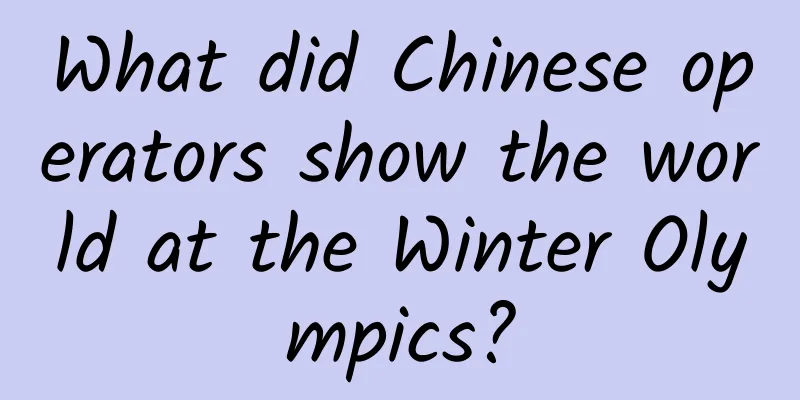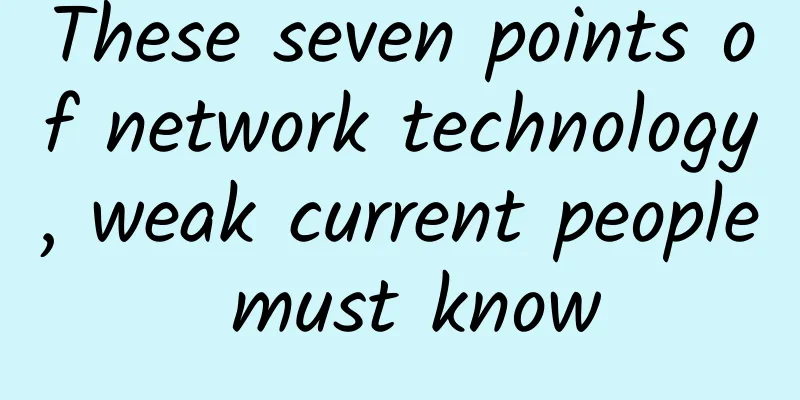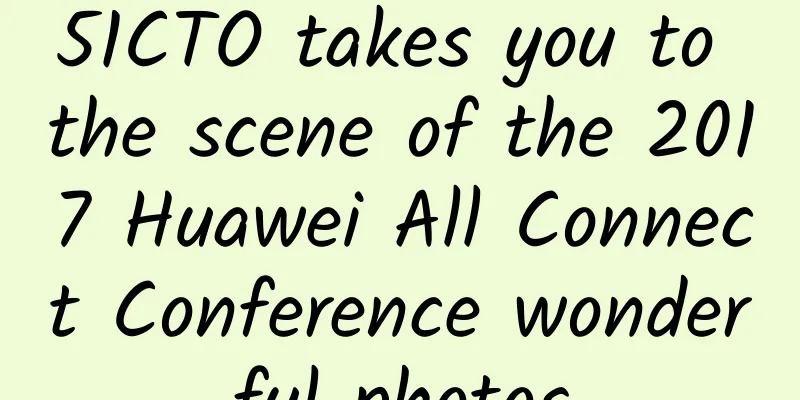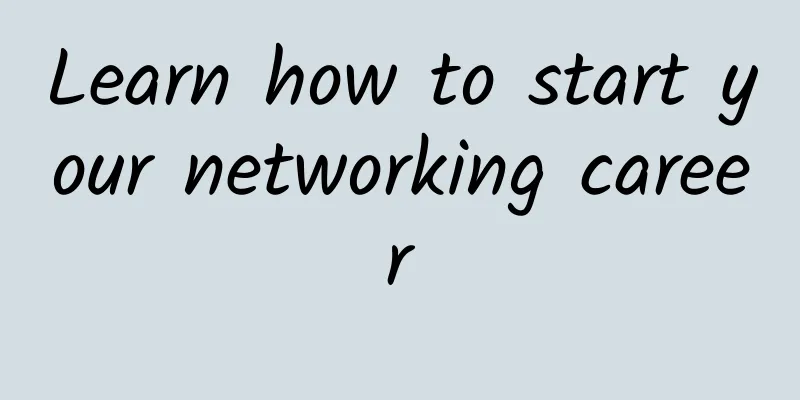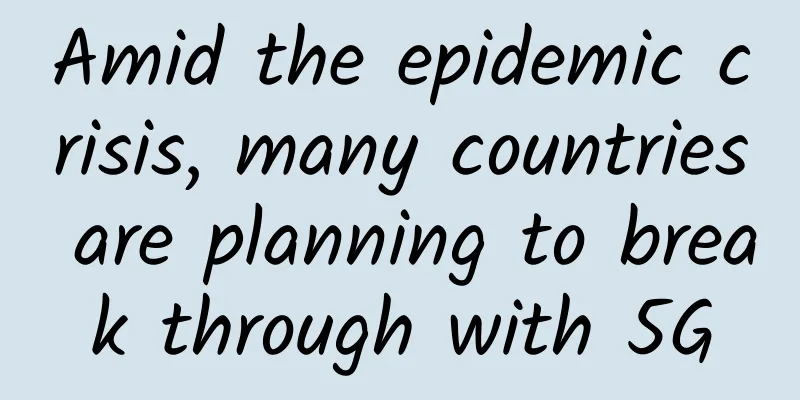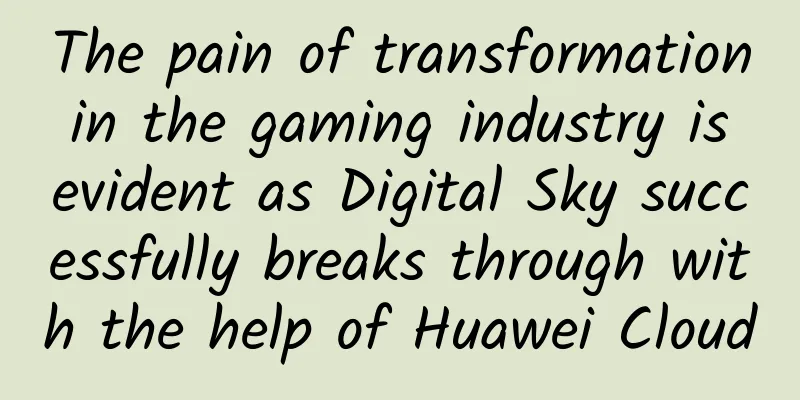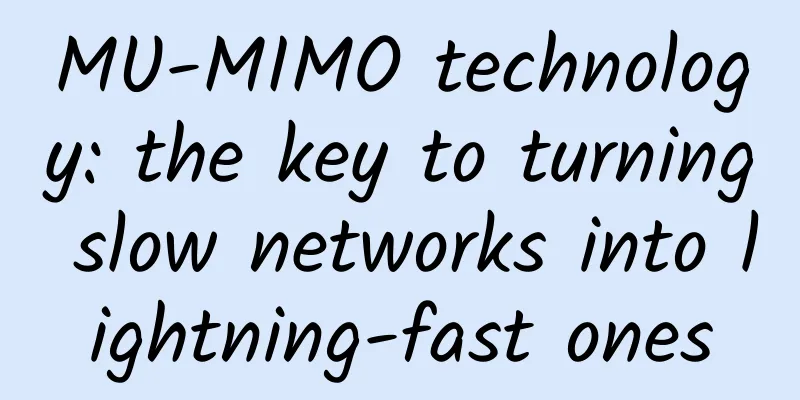Affecting 6,000 companies, Hannover Industrial Fair was cancelled for the first time in 73 years! But the development of industrial Internet will still accelerate
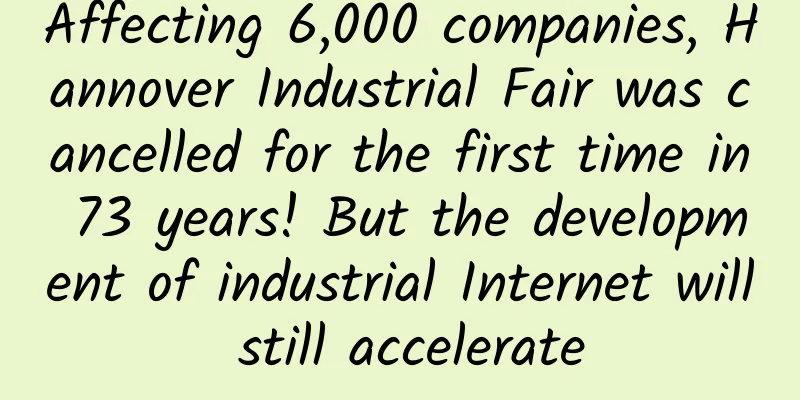
|
No matter how important an activity is, it seems less important in the face of the epidemic. As expected, due to the increasingly severe situation of the new coronavirus epidemic in Europe, the "2020 Hannover Industrial Fair" which was previously announced to be postponed to July this year was officially cancelled. According to the decree, the Hannover region has begun to implement comprehensive travel restrictions, and group gatherings are strictly prohibited. At the same time, the COVID-19 crisis is affecting the economy, and manufacturing companies, as the core customers of the Hannover Industrial Fair, are struggling with the serious consequences of the pandemic. Demand and sales in German industry are falling, supply bottlenecks are appearing, production is stagnant, and employees' working hours are shortened. "Given the rapid development of the epidemic and the comprehensive government restrictions on public and economic life, Hannover Messe will not be able to take place this year," said Dr. Köckler, Chairman of the Board of Management of Deutsche Messe AG. "Although our exhibitors, partners and the entire team have done everything they can to make this happen, today we must accept that the world's most important industrial event cannot be held this year." This is the first time in the 73-year history of the Hannover Industrial Fair that it has been suspended. Previously, the German Hannover Exhibition Company announced in early March that the exhibition originally scheduled for April 20-24 would be postponed to July 13-17. However, Dr. Kochler said that the organizers would not let the exhibition disappear completely. The organizers of the exhibition are developing a digital information and network platform, which will soon be open to customers, providing exhibitors and visitors with opportunities for economic policy guidance and technical exchanges. The 2020 Hannover Messe was originally planned to focus on future trends and hot topics in the current manufacturing industry, such as Industry 4.0, artificial intelligence, 5G and smart logistics. In addition, this exhibition is divided into six categories: "Innovative Technology and Future Production", "Automation, Power and Drive", "Digital Ecosystem", "Energy Solutions", "Logistics" and "Industrial Components". More than 80 conferences and forums will be held during the same period. The organizers of the exhibition revealed that the 2021 Hannover Industrial Fair will be held from April 12 to 16, 2021. Up to now, it has been publicly announced that 6,000 exhibitors from more than 70 countries and regions have been affected. The impact of the Hannover Messe In 2013, "Industry 4.0" was officially launched at the 2013 Hannover Industrial Fair. Along with the popularity of the concept of "Industry 4.0", the "Hannover Industrial Fair" also became popular. The Hannover Industrial Fair in Germany is the largest international industrial event today and the most important display platform for the world's latest industrial technology products and automation technologies. It is considered an important international event connecting the world's technology and business fields. In 1947, when Germany was trying to recover from the defeat in World War II, the British-controlled region decided to stimulate the German economy by holding a trade fair. They chose the city of Hanover as the venue for the exhibition because the factory building of the United Light Metal Company in the suburb of Laatzen was still intact and could be easily converted into an exhibition structure. On August 16, 1947, the German Hannover Exhibition Company was registered with a capital of 1.2 million marks. From August 18 to September 7, 1947, the first "Hannover Export Fair" was held in five exhibition halls of Vereinigten Leichtmetallwerke (United Light Metal Works). The exhibition was a great success, with 1,300 companies exhibiting their export products in four exhibition halls covering nearly 30,000 square meters. For 700,000 visitors, highlights included the world's smallest diesel engine at the time, dentures, a foldable baby stroller and Volkswagen's Beetle sedan. During the three-week exhibition from August 18 to September 7, a total of 30 million US dollars in transactions were carried out - an unprecedented success. By 1948, when the second Export Fair was held, Hanover received 6,000 exhibitor requests, but due to venue limitations, only 2,300 of them were accepted. The venue consisted of 4 exhibition halls, 1 post office and 1 parking lot, which seemed too small, so the organizers began to expand the venue. At the same time, the themes of the Export Fair became more diverse and special. In 1950, the Hannover Export Fair was renamed the German Industrial Fair (Deutsche Industrie-Messe). In 1961, the official name "Hannover Industrial Fair" was officially adopted, and it quickly became a platform for international technology and industrial exchanges. The Hannover Industrial Fair was a huge success, as if it was helped by Hermes, the god in charge of markets and trade in Greek mythology. Therefore, the German Hannover Exhibition Company used the side profile of Hermes as its company logo to this day.
So, the Hannover Messe is so important, how much negative impact will its cancellation have on the economy? The latest quarterly report of the Federation of German Industries (BDI) stated: "Economic growth is almost at a standstill." If the situation does not improve significantly in the second quarter, the German economy is expected to shrink in 2020. Previously, the BDI had predicted that Germany's GDP (gross domestic product) would grow by 0.5% this year, but that was without considering "black swan" events such as the epidemic. In addition, due to the cancellation of exhibitions and major events, the tourism industry has slumped and the local hotel industry has fallen into a huge crisis. At present, relevant industry organizations have asked the federal government to provide support in the form of liquidity assistance and funding plans, and also expect the government to introduce tax relief measures, such as reducing the value-added tax for restaurants from 19% to 7%. Will the development of the Industrial Internet be affected? In the past there was MWC (billions of dollars were wasted! The world's largest mobile communications exhibition MWC was cancelled for the first time in 33 years due to the epidemic, causing heavy losses to many parties), and now there is Hannover. As the epidemic continues to ferment, many world-class expositions have been affected, and "first" incidents have occurred repeatedly. Today, although the Hannover Expo, which gave birth to the concept of industrial Internet, was forced to be cancelled due to the epidemic, it will not have much impact on the industrial Internet. Affected by the epidemic, more and more companies have realized the importance of digitalization, and the highlights of intelligent manufacturing have been perfectly demonstrated. Especially in my country, the introduction of the concept of "new infrastructure" and the implementation of relevant policies will also drive new breakthroughs in the field of industrial Internet. If we analyze the "new infrastructure" from the perspective of the industrial Internet, it includes various core industrial software, underlying real-time databases, industrial IoT terminal devices, edge computing devices, industrial IoT platforms, industrial artificial intelligence applications, etc. These are all common digital infrastructures used by all industries. These infrastructures play a role like highways, which can reduce costs and improve efficiency of related industries by opening up and accelerating the flow and value of digital data in the entire system. China's existing economic structure needs to be further optimized, and the transformation and upgrading of many industries is imminent. The "new infrastructure" represented by the industrial Internet will help accelerate the flow of capital into the real economy and allow finance to feed back to the industrial economy more effectively.
In addition, the advent of the "new infrastructure" era has undoubtedly brought new development opportunities to the industrial Internet, which may affect the market structure in the next 3-5 years. In addition, the organizers of the Hannover Industrial Fair also stated that they will seek to create channels for online communication. So, will future industrial exhibitions be transferred to online? I think not. For the industrial sector, online exhibitions are also difficult to replace the charm of offline exhibitions. Offline exhibitions have their own unique charm and value, and the main purpose of attending exhibitions is to see people. Organizers, exhibitors and visitors of offline exhibitions can communicate and observe each other face to face, while online exhibitions can only watch and understand the exhibitors' displays and displays. Communication is generally through text, telephone, video and other forms. Compared with face-to-face communication between people, it is still far behind and lacks a sense of "experience". Especially for industrial enterprises, the shocking feeling that can be brought by the scene is difficult to experience online. There is no doubt that online exhibitions can "quench thirst", but they will not be able to replace offline exhibitions in the future. Data shows that as of this morning, the cumulative number of confirmed cases in the United States and Italy has exceeded 80,000. As the epidemic rages, let us look forward to the future, and perhaps we will say "it's great" when we attend the Hannover Industrial Fair next year. |
<<: The impact of the novel coronavirus on remote networking
Recommend
HostKvm: Hong Kong A Zone $5.6/month KVM-1G memory/10G hard disk/500GB monthly traffic
The Hong Kong International series VPS hosts prov...
Home users use routers to surf the Internet, so how many mobile phones can be connected to one router at most?
I think everyone is still curious about this ques...
Wi-Fi 6E has been launched. What is the difference between it and ordinary Wi-Fi?
On September 2 last year, ROG released a high-end...
Three major operators: 5G package user penetration rate will exceed 60% in 2022
On March 13, China Telecom Corporation Limited an...
How to unleash the power of the tactile internet through 5G networks
Today, the Internet is everything! It was created...
UCloud Xu Liang: Three IPv6 external network access solutions to fully meet users' multi-stage needs
[51CTO.com original article] On May 28, 2019, UCl...
SD-WAN industry development requires VNF evolution
Like any successful technology, the Software Defi...
Why are the salaries of network engineers so different?
What are the salaries of network engineers? In fa...
China Mobile's 4G users exceed 500 million, with average monthly data usage exceeding 1G
On December 20, Beijing time, China Mobile Chairm...
Where does the strength of 5G factories that “take over” 5G+Industrial Internet come from?
In order to accelerate the industry's quality...
The four major telecommunications operators may realize free roaming settlement in rural areas through resource peer-to-peer exchange
In response to the question of how the four major...
SpartanHost: Seattle high-security KVM starting at $2 per month, 256M memory/20G hard drive/1TB traffic
SpartanHost is a foreign hosting company founded ...
"Internet +" activates new driving force for Nong'an's development
[[188759]] "In the past, I had to go to seve...
Guess how much of Huawei Cloud's "black technology" is used in Huawei Mall (Vmall)?
[51CTO.com original article] Within a few days af...
Organizations should better understand and leverage data center infrastructure management (DCIM)
Today, the application of data center infrastruct...
